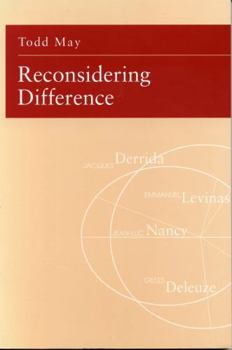Reconsidering Difference: Nancy, Derrida, Levinas, Deleuze
Select Format
Select Condition 
Book Overview
French philosophy since World War II has been preoccupied with the issue of difference. Specifically, it has wanted to promote or to leave room for ways of living and of being that differ from those usually seen in contemporary Western society. Given the experience of the Holocaust, the motivation for such a preoccupation is not difficult to see. For some thinkers, especially Jean-Luc Nancy, Jacques Derrida, Emmanuel Levinas, and Gilles Deleuze, this preoccupation has led to a mode of philosophizing that privileges difference as a philosophical category. Nancy privileges difference as a mode of conceiving community, Derrida as a mode of conceiving linguistic meaning, Levinas as a mode of conceiving ethics, and Deleuze as a mode of conceiving ontology.
Reconsidering Difference has a twofold task, the primary one critical and the secondary one reconstructive. The critical task is to show that these various privilegings are philosophical failures. They wind up, for reasons unique to each position, endorsing positions that are either incoherent or implausible. Todd May considers the incoherencies of each position and offers an alternative approach. His reconstructive task, which he calls "contingent holism," takes the phenomena under investigation--community, language, ethics, and ontology--and sketches a way of reconceiving them that preserves the motivations of the rejected positions without falling into the problems that beset them.





